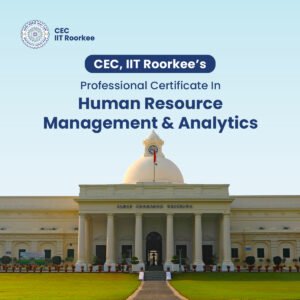Have you ever wondered how successful companies expand, diversify, and stay ahead in the competitive business world? It’s like watching a dance performance where every move matters and the stakes are incredibly high.
Today, we invite you to step into corporate choreography and ask yourself: “When it comes to business growth, which dance is the real showstopper – the graceful waltz of a merger or the commanding tango of an acquisition?”
In the grand theater of commerce, mergers and acquisitions take center stage. But what is the key difference between merger and acquisition? Why do some companies choose one over the other? How do these strategic moves impact the corporate landscape?
The ownership of corporations, business organizations, or their operating units may be transferred to or merged with another firm or business organization through commercial transactions known as mergers and acquisitions (M&A).
Understanding difference between Merger and Acquisition
What is Merger?
A merger is like two dance partners creating a harmonious duet. In the business context, two separate companies join forces and become one.
From a legal standpoint, a merger is akin to a grand metamorphosis where two companies come together, shedding their old identities to birth a brand-new entity with fresh ownership and management structures, often featuring key members from each original firm. It’s like a chrysalis turning into a vibrant butterfly but in the corporate world.
Different types of Mergers often take the stage to reduce the heavy cost curtains, expand the storyline into new markets, and skyrocket revenue and profits. Think of it as two adventurers deciding to combine their treasure maps for a more fruitful quest.
What is the purpose of mergers in business?
Now, let’s talk about the real theater of business – the examples of Mergers and Acquisitions, the friendly versus hostile takeover drama. In the spotlight, we have various types of mergers, akin to a well-choreographed ballet, and several types of acquisition that are hostile, more like a suspenseful thriller. The critical factor to recognize the difference between merger and acquisition is whether the deal is sealed with a warm handshake (merger) or a clenched fist (acquisition).
In the enchanting realm of friendly mergers, cash isn’t the show’s star; it’s more about exchanging power and vision. However, it’s a rare spectacle to witness. Picture two CEOs, each with their kingdom, willingly deciding to share the throne for the greater good. When this celestial alignment occurs, both companies perform a magic act – their existing stocks vanish like a puff of smoke, and from the haze emerges a shiny new stock bearing the name of their newfound corporate identity.
So, in the captivating drama of corporate metamorphosis, mergers are the elegant ballet dancers, gracefully twirling to reduce costs and expand their horizons while preserving their individuality.
Both companies usually share their resources, including assets, employees, and technologies, during a merger to create a stronger, more competitive entity. It’s a strategic move aimed at enhancing market presence, expanding product lines, or streamlining operations.
What is Acquisition?
The difference between merger and acquisition is that, Acquisition, is more like a solo performance. In this scenario, one company takes the lead and acquires another. It’s akin to a dance where one partner dominates the floor, guiding the other through the motions.
There are different types of acquisition wherein the acquiring company absorbs the acquired one during an acquisition, usually incorporating it into its existing structure. This can lead to significant changes for the acquired company, including new management, branding, and operational procedures.
Who are the key players in the acquisition process?
Buyer: The party that is acquiring the target company. The buyer’s management team will be responsible for acquiring the target, negotiating the deal terms, and integrating the target into their organization.
Seller: The party that is selling the target company. The seller’s management team will be responsible for preparing the target for sale, negotiating the deal terms, and transferring ownership of the target to the buyer.
Investment bankers: Investment bankers act as financial advisors to the buyer or seller. They help structure the deal, raise financing, and negotiate the transaction terms.
Lawyers: Lawyers provide legal counsel to the buyer, seller, and other parties involved in the acquisition process. They help draft and negotiate the legal documents and ensure the deal complies with all applicable laws and regulations.
Accountants: Accountants provide the buyer and seller with financial analysis and due diligence services. They help assess the target company’s financial health and identify potential risks or liabilities.
Valuation experts: Valuation experts independently assess the target company’s value. The buyer and seller use this information to negotiate the purchase price.
Advisors: Other advisors, such as tax and human resources advisors, may also be involved in the acquisition process.

Difference between Merger and Acquisition
There are many examples of Mergers and Acquisitions, including horizontal mergers, vertical mergers, and conglomerate mergers. Each type of merger or acquisition serves different strategic goals and presents unique challenges. The choice of which type to pursue depends on the companies’ objectives, industry dynamics, and market conditions.
Now, let’s examine the key difference between merger and acquisition business moves:
Nature of Collaboration
Mergers: Collaboration is the name of the game. It’s a partnership where both companies work together, often with equal say in decisions.
Acquisitions: This is more of a takeover. One company dominates the other; the acquired company usually has less say.
Identity
Mergers: Both companies retain their identities, often resulting in a blended name or branding.
Acquisitions: The acquired company’s identity is often subsumed by the acquiring company, with the possibility of rebranding.
Control
Mergers: Decision-making is shared, reflecting a sense of equality between the merging entities.
Acquisitions: Control rests largely with the acquiring company, dictating the future of the acquired one.
Purpose
Mergers: Typically, the goal is to create a stronger, more competitive entity through synergy.
Acquisitions: The aim is to gain control, expand market share, or eliminate competition.
Cultural Impact
Mergers: Cultural integration often ensures a harmonious blend of values and practices.
Acquisitions: Cultural differences may be less prioritized, potentially leading to clashes.
Unveiling the M&A Trends
The Tech Revolution Continues to Reign Supreme
In the M&A arena, technology remains the undisputed monarch. We witness the digital realm expanding its reach each year. Companies will continue to seek tech-driven mergers to bolster their digital portfolios. Whether it’s AI, cybersecurity, or the metaverse, expect M&A deals that make headlines and reshape entire industries.
Sustainability: The Green Handshake of the Future
In a world increasingly concerned about its ecological footprint, sustainable M&A is set to take center stage. Businesses are recognizing the importance of environmental, social, and governance (ESG) factors. The mergers of tomorrow will be defined not only by profit margins but by their commitment to sustainable practices. Think of it as a “green handshake” where both parties pledge to leave a positive impact on the planet.
Health and Wellness: A Healthy Appetite for Deals
The pandemic has accelerated the adoption of digital health solutions and heightened our awareness of overall well-being. We anticipate a surge in M&A activity within the health and wellness sector. Companies will vie to provide holistic health solutions, from telemedicine to mental health support, to cater to the growing demand for personal care.
The Creative Economy Takes Center Stage
The creative economy will flourish as the world embraces remote work and digital collaboration. Expect M&A trends to reflect this shift, with businesses looking to acquire creative talents, agencies, and content creators. Fusing creativity and technology will lead to groundbreaking innovations and artistic collaborations.
The difference between merger and acquisition landscape promises to be an enthralling spectacle of innovation, sustainability, and global collaboration. Each deal will be a chapter in the evolving story of corporate evolution, where businesses, like seasoned dancers, adapt to the rhythm of a changing world. The stage is set, the actors are ready, and the audience, the global business community, eagerly awaits the unfolding drama of M&A.
The Final Words
In business, the difference between merger and acquisition is their two distinct dances, each with its rhythm and style. A merger is like a graceful waltz, where two partners come together as equals, blending their strengths to create something beautiful. On the other hand, an acquisition is akin to a commanding tango, where one partner takes the lead and guides the other through the steps.
Understanding the difference between merger and acquisition corporate moves is essential for businesses looking to embark on such journeys. Whether you opt for the harmonious waltz of a merger or the commanding tango of an acquisition, both can lead to growth and success when executed with precision and purpose.
The Certified Investment Banking Operations Professional (CIBOP), is Imarticus Learning’s premier investment banking certification program tailored for aspiring professionals with under three years of experience. This immersive 150-hour program is your key to unlocking a rewarding career in investment banking operations. Enrolling in CIBOP comes with the added benefit of 100% job assurance, ensuring you access to ten exclusive job interviews with our extensive network of over 500 esteemed partner organizations actively seeking skilled investment banking professionals.
So, the next time you hear about a merger or acquisition in the business world, envision it as a captivating dance where companies move in sync to the rhythm of opportunity and transformation.

















